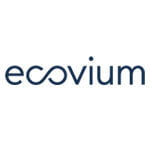Transparency and resilience in times of the disruptive supply chain


The new normal
According to Covid-19, the Ukraine crisis once again highlights the need for companies to adjust to a more complex normal.
For international trade, it is now more important than ever to keep up with rules and regulations, whether compliance, export, import or for preferential traffic. Only with smooth customs processing and adherence to compliance requirements can companies overcome borders quickly and efficiently. Without digital support, the challenges of foreign trade are almost impossible to overcome. In addition, there is the risk management of the supply chain as well as a very dynamic development of customs procedures and trade areas.
Transparency and resilience - the new normal
The use of integrated IT systems makes day-to-day business much easier, enables lean corporate processes and cost savings. If the interaction of all relevant IT systems is successful, at best without interfaces, nothing stands in the way of a transparent and secure supply chain across borders.
Rapid economic growth and ever-increasing compliance requirements are demanding more and more from those responsible. The war in Ukraine is also putting pressure on companies worldwide. A legally compliant comparison of master and document data against the numerous, continuously updated sanctions lists is hardly possible without software support. With the right software solution, the entire verification process runs automatically in compliance with all customs and industry-specific regulations, which also significantly reduces the error rate. If the software is seamlessly integrated into the existing company processes, there is no additional expense for the company as a result of the verification process.
Digital export controls monitor shipments and control the export sensitivity of goods. In this way, they enable companies to plan and develop products proactively and with foresight. Here, too, digital support reduces the error rate of the control processes and thus the risk of unknowingly violating compliance requirements. The faster and simpler handling of export processes results in shorter disposition and response times for business partners and accelerates the entire flow of goods.
In global trade and the cross-border division of labor in manufacturing companies, goods can rarely be clearly identified as originating. Thus, in most cases, a high degree of manual effort and research in complex sets of rules is necessary to determine and prove the origin of a good. Here, too, it is necessary to increase the degree of automation by introducing the right software, to create parallel transparency for the authorities as well as for suppliers and, ultimately, to secure competitive advantages through the use of international trade agreements.
Trust as a competitive factor
Transparency and security form the basis for a trusting cooperation with all parties involved in the supply chain. Customs authorities acknowledge this gain in trust not least with simplified, accelerated procedures, which in turn benefit companies and their customers.
Companies that address the infrastructure and necessary tools of supply chain sustainability in a timely manner will not only meet the challenges of volatile global markets, but also set the course for the new normal and secure competitive advantages.






